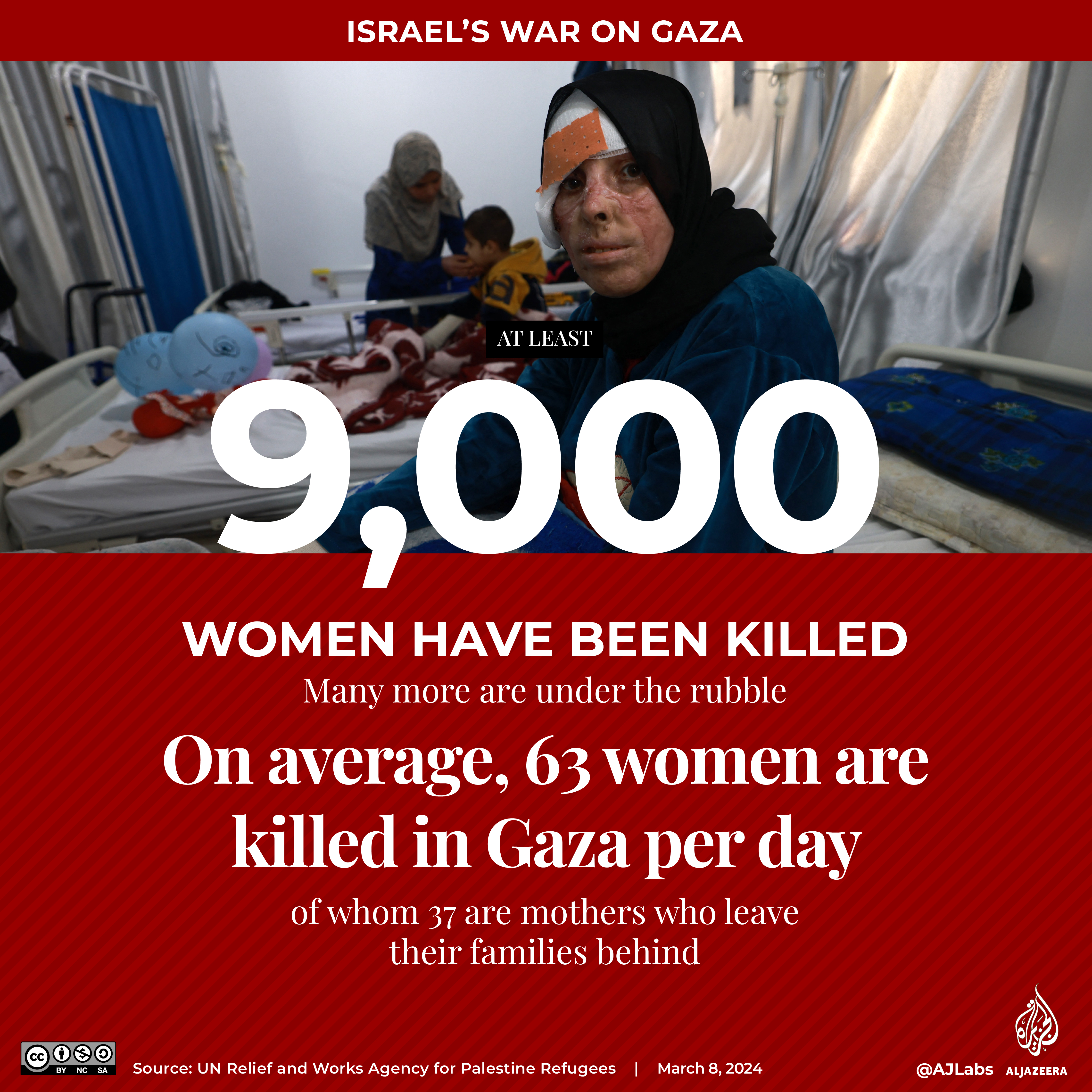Video clip captures moment of Israeli missile strike on Gaza refugee camp
Our colleagues at Al Jazeera Arabic have shared video footage that captures the exact moment an Israeli missile destroys a house in the Jabalia refugee camp in the Gaza Strip.
Audio on the clips appears to indicate that the missile was launched from an Israeli jet fighter.
Additional video footage shows the vast destruction caused by such attacks on civilian targets.
صاروخ إسرائيلي يستهدف منزلا بمخيم جباليا شمال قطاع غزة#الأخبار #حرب_غزة pic.twitter.com/7pRxmE49kI
— الجزيرة فلسطين (@AJA_Palestine) May 4, 2024
Translation: An Israeli missile targets a house in Jabalia camp, northern Gaza Strip.
‘No signs of slowing down’: Israeli attack on residential home kills 3 in Rafah
Despite the talk of ongoing progress made in Cairo for a potential ceasefire, the Israeli military is showing no signs of slowing down its attacks across Gaza.
Artillery shelling and the presence of drones across overcrowded Rafah City – and the central area of Gaza – continue.
Overnight attacks killed three people inside a residential home in Rafah.
Two of the people who died were evacuees displaced from the northern part of the enclave, and one was a local resident. They had been sheltering in this home. Such attacks are not only causing civilian causalities, but also forcing people into more internal displacement.
This is the pattern we have seen in the past months. The intensity of the attacks across the city are forcing people to move from one place to another.
People expressed that there is no safe place across Rafah city.
Meanwhile, in the central area of Gaza, the Israeli military continues its heavy bombardment and ground operation in the Nuseirat refugee camp.
Israeli army says it has struck targets in central and southern Gaza
Israeli warplanes have hit targets in southern Gaza’s Khan Younis after a rocket was launched towards Ein Hashlosha, a Jewish settlement, on Friday, according to the military. The Israeli army said in a statement on X that the rocket fell short and struck in an area near the border fence between Israel and Gaza.
Fighter jets also struck mortar shell positions that were ready to be used in attacks on Israel in southern and central Gaza, the statement said. The Israeli navy conducted strikes along Gaza’s coast over the past day, backing the ground forces operating in central Gaza, the military added.
Search and rescue operation after Israeli strike on a house in Rafah

Palestinian civil defence members evacuate survivors of the Israeli bombardment on the Abu Alenan family home in Rafah early on Saturday.
Palestinian medics evacuate children wounded in an Israeli bombardment in Rafah.
Gaza death toll rises
At least 34,654 Palestinians have been killed and 77,908 wounded in Israeli attacks on Gaza since October 7, its Health Ministry says. The ministry added that 32 people were killed and 41 injured in the latest 24-hour reporting period.
Israel strikes hit mosque near Khan Younis
Israeli forces have shelled a mosque in the town of Fukhari, east of Khan Younis, according to our colleagues at Al Jazeera Arabic. Israeli artillery shelling has also hit the towns of al-Mughraqa and az-Zahra in central Gaza, according to the report.
It is unclear if the attacks caused casualties.





































































